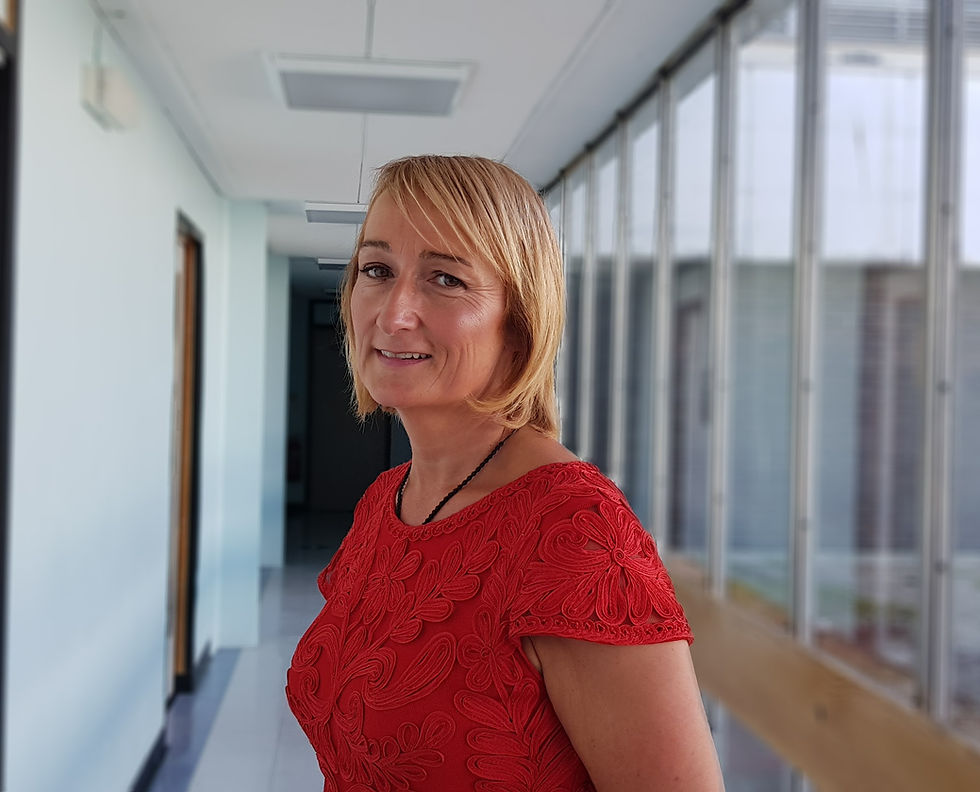Paul Jebb
- brianwebster900
- Mar 5, 2024
- 4 min read
Updated: Mar 6, 2024

Paul's Bio
Paul qualified as a nurse in 1996 and worked in numerous posts within nursing, as well as a period in operational management, in October 2014, Paul undertook a secondment to the National Patient Experience team at NHS England as Experience of Care Professional Lead, leading on developing Always Events, aspects of the carers work stream and toolkit development to enhance experience of care. In December 2016 Paul returned to an NHS Trust’s and Paul is now the Associate Chief Nurse, Experience, Engagement & Safeguarding at Lancashire & South Cumbria NHS Foundation Trust
Paul has developed his managerial skills and has completed an MA in Health Service Management. Paul also completed the Dept. of Health/RCN leadership Course for Nurses Working with Older People in 2005, and he was a Fellow of the NHS Institute Faculty of Improvement. And in 2016 completed the ‘Aspirant Executive Nurse Leaders’ sponsored by NHS Improvement at London South Bank University.
In April 2016 Paul became an International Fellow of the England Centre for Practice Development
In February 2014 Paul was honoured to be offered an Honorary Senior Lectureship at the University of Central Lancashire
Paul has been involved and led on numerous quality improvement initiatives throughout his career, and has gained the extra mile award by the motor neurone disease Association, in 2012 Paul was winner of a national Patient Safety Award, and in 2014 Paul and his team won a national healthcare communications award for best engagement. In 2021 Paul was named as the NHS Patient Experience Professional of the Year at the Patient Experience Network National Awards (PENNA).
Paul is also a member of an NMC Professional Standards advisory panel, which aims to give strategic direction to the NMC Executive team and to improve the dialogue between the NMC and leaders in the professions and to ensure expertise, is brought to bear on NMC work. Paul was also part of the strategic group to refresh the NMC Education Standards.
Paul has represented the Royal College of Nursing at local, regional, national and international levels, is a member of RCNi Editorial Advisory Board. Paul also judges several national nursing and health care awards. Paul has also been a member of the RCN Nurses in Leadership and Management Forum steering group.
Paul has also been the Assistant Chief Nurse (Head of Workforce) for St John Ambulance (England & the Islands), and has held other voluntary roles. In 2012 he was honoured with the award of ‘Officer of the Order of St John’.
Follow Paul on Twitter (X) here: @pauljebb1

Listen to the episode below
Watch the episode below
A summary of our discussion
In this episode of the podcast, I spoke to Paul Jebb who is currently an associate chief nurse in a large NHS trust. I broke the ice by asking Paul what has made him smile today and he told me about the amazing day he has had based at such an important department within his trust, please do check out the pod to hear all about this.
Paul then responded to a quote I put to him on leadership. Do check into the podcast to see what this was and Paul's initial response.
Jumping into the main part of the podcast, Paul gave his 3 points about how to be a better leader. They were to always remember why you became a nurse, always have at the forefront of our minds how we can make a difference and last but not least, the impact we have on people and their lives. Check these out on the podcast, it was great to hear all about them.
Paul then told us about 2 examples of when leadership has gone well and these were when the CEO of his NHS trust asked him if he was ok. This seems so simple and it perhaps is but that's what is key about leadership, sometimes it is the simple that makes a great leader. His second example was to embrace the leading you do in the care of your patients. You are absolute leaders in the delivery of care.
Lastly, as Paul's 1 leadership style, he cheated and chose two! He chose Democratic (also known as Participative leadership) and Transformational Leadership. Give the podcast a listen and you can read more about this leadership style below.
We closed the episode by asking Paul what he is most grateful for in life. Her response was as below:
"I will be happy that I have 3 amazing kids and and amazing wife"
Delve into Democratic (also known as participative) and Transformational Leadership
Transformational leadership can be cited as far back as the 1970s and is all about the leaders being visionary, and inspiring positivity in their followers. These leaders are said in the literature to often provide good results when they focus on things and work to change them. They work closely with teams of followers to execute changes in positive ways with the leader being the primary catalyst in the team.
Through strong relationships between these leaders and their followers, these leaders grow their followers by influencing and motivating them to see change and tackle challenges. To aid this they also highlight accomplishments in their followers that their followers may not have even considered or appreciated. this requires the leader to be able to execute self-development well.
Said disadvantage of this style of leadership is said to be there is too much focus on the leader being the main catalyst in processes and changes as well as an area of leadership lacking in evidence and research.
Further reading on Demoratic and Transformational Leadership
Websites:
Open access articles:
Footnotes
Why not take this fun personality test to find out your personality? Check it out here:
And also why not find out your leadership style based on a questionnaire? Try it here:




Comments